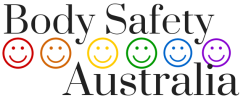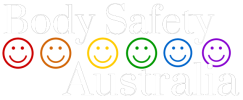Equal Opportunity & Anti-Discrimination Policy
Body Safety Australia is committed to the principles of Equal Employment Opportunity and supports the creation of working conditions to ensure that all team members have an equal chance to seek and obtain employment, promotion, training and the benefits of employment.
Our commitment to supporting these values is reflected in the fact that we are women-led and our staff are comprised of individuals from varied communities including; LGBTQIA+, Aboriginal, disability, and culturally and linguistically diverse. We are proudly a minority-led organisation.
Body Safety Australia is an equal opportunity employer. This is encoded in our constitution, which states that Body Safety Australia must recruit a minimum number of qualified persons belonging to a marginalised community to be on our board, and leadership team.
In our recruitment process, we practice affirmative action and strongly encourage applications from individuals who identify as Aboriginal & Torres Strait Islander, Gender and/or sexuality diverse, Culturally and Linguistically Diverse, disabled and single parents.
Team members are valued and respected as fellow human beings regardless of age, sex, faith, race, marital status, and/or any other factors not applicable for conducting professional duties, and maintaining the expected standards of service.
Body Safety Australia does not tolerate any form of discrimination. All team members have the right to work in an environment free of discrimination and harassment.
Any reports of discrimination or harassment will be treated seriously and investigated promptly, confidentially and impartially.
Under Federal and State anti-discrimination laws, discrimination against team members, clients or suppliers on the following grounds is against the law:
- sex,
- relationship or parental status,
- race,
- religious belief or activity,
- political belief or activity,
- impairment,
- trade union activity,
- lawful sexual activity,
- pregnancy,
- breastfeeding needs,
- family responsibilities,
- gender identity,
- sexuality, or
- age.
It's also against the law to treat a team member or client unfairly because they are linked to someone from one of these groups.
Unlawful discrimination occurs when someone is treated less favourably because of one of their personal characteristics listed in the legislation.
Discrimination includes, but not limited to:
- offensive "jokes" or comments about another team member’s racial or ethnic background, sex, sexual preference, age, disability or physical appearance,
- display of pictures, computer graphics or posters which are offensive or derogatory, or incite hatred or hate speech
- wearing items of clothing, and or badges with slogans which are offensive or derogatory, or incite hatred or hate speech
- remarks in the media or social media that incite hatred of others because of race, religion, sex, sexual preference, age, disability or physical appearance
- expressing negative stereotypes of particular groups for example, “married women shouldn’t be working”,
- judging someone on their political beliefs rather than their work performance,
- using stereotypes or assumptions to guide decision-making about a person’s career, or
- undermining a person’s authority or work performance because you dislike one of their personal characteristics.
Disciplinary action will be taken against anyone who unlawfully discriminates against a co-worker or client. Discipline may involve a warning, counselling or dismissal, depending on the circumstances.

